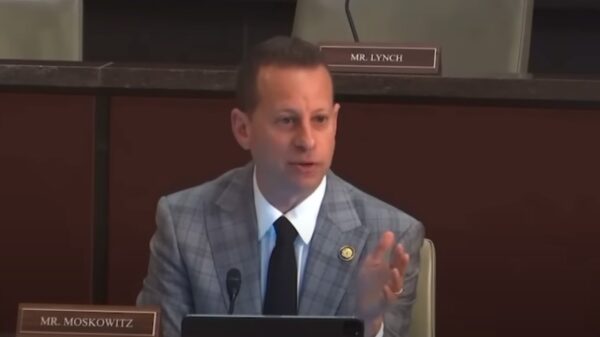The ongoing debate surrounding the potential dangers of artificial intelligence has divided experts and stakeholders in various fields.
President Biden stated last week that it remains to be seen whether AI is dangerous, but emphasized the responsibility of technology companies to ensure their products are safe before public release.
For AI to move forward, we can’t be completely risk-averse. To understand and appreciate the potential dangers of AI we need to examine the roles of different stakeholders in addressing these concerns.
Among the key arguments for AI being dangerous is job displacement, as AI has the potential to automate various tasks, leading to significant job loss. Along with that, advanced AI systems may make decisions without human input, raising concerns about accountability and ethical implications.
Those who have these concerns are also worried about the weaponization of AI. They worry that the development of AI technology for military purposes could lead to an arms race and increased global instability. These concerns form the foundation of what is becoming a movement led by critics such as Elon Musk, one of the founders of OpenAI, who argue that AI is now out of control.
Opponents of the idea that AI is inherently dangerous argue that technology has historically been used for the betterment of society, and AI should be no exception. The foundation of their argument is that if an AI system becomes too powerful or makes decisions without human oversight, safeguards can be implemented to shut down the system before any harm occurs.
For this to be able to happen, technology companies need to bear a significant responsibility in ensuring the safety of their AI products before releasing them to the public. The challenge lies in determining the best approach to guaranteeing safety and evaluating the necessity of regulatory measures. The Facebook data scandal highlighted the limitations of self-regulation, as the company was unaware of the extent of data collection until it was exposed by an investigative journalist.
Governments play a multifaceted role in the development and regulation of AI. Regulatory measures can help prevent potential abuses of power and protect both companies and individuals. Government funding can support research into the societal benefits and risks of AI, as well as the reasonable and rational development of regulations to address these issues.
Consumer demand can significantly influence the development and use of AI technology. By raising awareness and advocating for responsible AI use, consumers can drive the demand for better data protection, privacy, and security regulations. But this can’t happen in a vacuum. Educating consumers about how their data is used and the actions they can take if they disapprove is a necessary condition if we want people to be able to make informed decisions about AI technology.
Academics also play a vital role in researching and understanding the implications of AI in society. Concerns about AI becoming too powerful or dangerous for human control have to be balanced with potential benefits and improvements to our collective quality of life. More interdisciplinary research from computer science experts, sociologists, and educators (and, ideally, academics who aren’t siloed but can understand and work across disciplines) is necessary to fully understand (and be able to explain to the rest of us) the capabilities and limitations of AI.
Finally, there is the law. Legislators, lawyers, and judges will look at all of these issues, and their work will help inform where AI ultimately lands.
Philadelphia lawyer, Michael van der Veen, shared his perspective.
“The debate on the potential dangers of artificial intelligence is far from settled. There will be an ongoing need to balance how AI can ultimately benefit humanity, with the legal, societal, and practical challenges presented by trying to implement it in our lives,” van der Veen said.
As the debate on the potential dangers of AI will continue as our understanding of AI systems deepens, this balance is the key to realistic and prudent risk management. The broader we can keep our perspective and the more open we can be to questioning how AI is evolving, the better the result should ultimately be.
About Aron Solomon
A Pulitzer Prize-nominated writer, Aron Solomon, JD, is the Chief Legal Analyst for Esquire Digital and the Editor-in-Chief for Today’s Esquire. He has taught entrepreneurship at McGill University and the University of Pennsylvania, and was elected to Fastcase 50, recognizing the top 50 legal innovators in the world. Aron has been featured in Forbes, CBS News, CNBC, USA Today, ESPN, TechCrunch, The Hill, BuzzFeed, Fortune, Venture Beat, The Independent, Fortune China, Yahoo!, ABA Journal, Law.com, The Boston Globe, YouTube, NewsBreak, and many other leading publications.





















